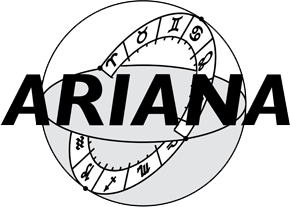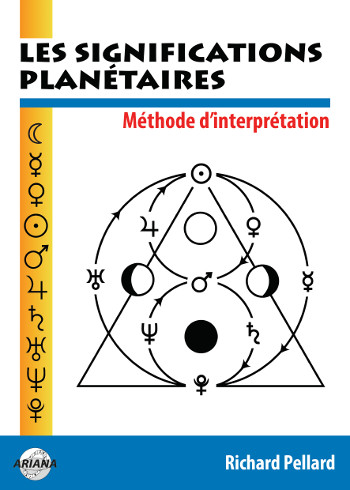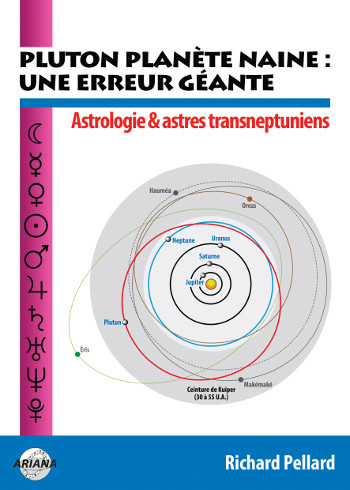Your Planets
Portraits of the Planets
Aspects between Planets
The planetary ages
The planetary families
Planets in Signs
The Planets in comics


After the publication of Tetrabiblos (Denoël 1974), it became impossible to deny the orientation, conditionalist before the letter, of Claudius Ptolemy, mathematician, cosmographer and geographer of Alexandria, died according to P. Couderc (1), in 150 AD.
Did he read the work of the Prince of Astrologers, This collection director who, presenting the masterpiece, reports an esoteric and symbolic traditional knowledge the article? Or is this knowledge, of all times, respecting the knowledge acquired, treated according to the standards and methods of the logic of his time? In this case, our knowledge, seed of tomorrow, is a permanent tradition, and, unlike a esotericism backward-looking, we practice a living symbolism starting from contemporary knowledge to glimpse what will emerge from it.
About Manilius (29 BC to 14 AD), Max Lejbowicz reported, in a page of history (Astrologique No. 8), what part of reason attached to reality inspired the poet of Les Astrologiques (Denoel 1970): what “traditionalist” will ever quote this Manilius declaring: “Reason knows no obstacles; the immensity of objects, their darkness, nothing stops him; everything yields to its strength and its activity extends to heaven.” But neither is it Couderc or E. Schatzman who will claim it.
Jérôme Cardan (1501–1576), as Ptolemy, stated some conditionalist premises by subjecting the interpretation to habits and customs, to the condition of the father and mother, to education. All things to think about, and even age. Cardan went so far as to link each chart to those of the group forming the medium of evolution. An intuition that P. Couderc makes fun of, honored by the conditionalist school, the theory of ages involving the formation and revelation of character through relational life and generational relationships.
Launched in the years 64–65, the phrase conditional astrology appeared in early 1979 under the pen of Gérard Simon, lecturer in philosophy at the University of Lille III. His work on Kepler, astronomer-astrologer (Gallimard), now constitutes a first-rate reference for the conditionalist thought of J. Kepler: “I do not transfer the government of human affairs to heaven, and there are enormous differences between my philosophical observation and their foolishness (astrological aphorisms), or if you prefer their madness. Because to take my example, I know a woman born in almost the same aspects as me, certainly in the most worried mood, but to whom it is useless for the study (which is not surprising in a wife) and even completely disrupts her household, and makes herself the author of her deplorable misfortunes. It is therefore added to the aspects of the planets the imagination of my mother when she carried me… it is added again that I was born a man and not a woman (because it is in vain that astrologers seek to distinguish the sex in the sky); thirdly, I inherited from my mother her physical temperament, more suited to study than to any other mode of life; and fourthly, my parents not being rich, they had no land to which I could be destined and attach myself; fifthly, there were schools, there were examples of the liberality of the magistrates in favor of gifted children for studies” (2).
G. Simon, commenting on this text by Kepler, has precisely located the problem that the founder of modern astronomy — and astrology — set out to solve: to establish a sure distinction between a natural conditioning and a supernatural fatality, the horoscope testifying to one more than the other.
A problem cannot be solved by a good statement. From Ptolemy to Kepler the solutions remained sketchy. Nowadays, the supernatural, the practice of divination has taken over. Historically, the “tradition”, for the greatest astrologers, was conditionalist. There would be no need to insist if the magist tendencies, also linked to the origins of astrology, had not, in their triumphalism, grossly stifled the natural way. These tendencies haughtily hold the upper hand, supported by the mercantilism who hates anything that puts off the buyer and complicates the sales pitch.
To be a conditionalist is to return to the preoccupations of Ptolemy, Manilius, Cardan, Kepler, as to the rational, real, astrometric for the sky, biophysical for the man.
Apart from these concerns, all sorts of astrological speculations are possible. They amalgamate symbols and signals in a soup of analogisms where a few astrometric ingredients guarantee objectivity. These astrologisms enjoy a supposedly irrational fashion. I say allegedly, because the creativity of thought proper to the child, to the poet as well as to the original and original thinker, cannot be compared to the antics of adults who, having failed in reason, are composed of dreams more illogical than the real ones and make dogma of their fantasies. The sources, natural and supernatural, once united, now flow into narrow-minded scientism and simplistic Zozoterism. Soup makers, realizing that there is little or no possibility of doctrinal coherence in contemporary magico-symbolism, ignore any logical theory: only the practical results (let’s hear theirs) count. The “system”, as it is, “market”, and yours truly is just a jerk… in the line of Kepler.
I was able to say, as a pessimistic joke, that assuming equal results for two competing systems, we should in any case retain the one that has a non-absurd theory with regard to astrometric reality. After practicing astro-psychology Then conditionalist astrology, I affirm today that in spite of results whose limits we will see, astro-psychology magisterium is a disastrous product for the uninformed consultant. It is far from giving the optimal interpretation of celestial factors, its bric-a-brac and its wild psychoanalysis are most often harmful. COMAC publications will demonstrate this.
For the time being, the comparative assessments relate to the designs and the general results. The comparison allows us to take stock: where is conditionalist astrology in twenty-five years of research, where are astrologies since the renewal opened by Choisnard?
Since there are two paths of explanation, the natural and the supernatural, a summary classification places, in the natural: scientists, statisticians and conditionalists and, in the supernatural: traditionalists who call themselves such, psycho-symbolists, esotericists and spiritualists. As it is hardly possible and advantageous to review in detail each school and those, more recent, which I am unaware of, I retain three currents: astro-psychology, astro-statistics, astro-conditionalist. Apart from nuances, they are sufficient to cover all schools. Likewise, in order not to lengthen my study unnecessarily, I have only retained the major chapters of the Zodiac, the Planets, the Houses and the Aspects. My intention is to give conditionalist students a first basic document to judge, compare and control, the absence of a similar document leading to repetitions, controversies which delay more urgent tasks. In short, for the future, I would like not to have to harp on the question of planetary gravities is much more pressing. For the tourist panorama on the doctrines and their reports, these comparative assessments will render some service.
Article published in issue No. 1 of the Cahiers conditionalistes (April 1980).
▶ Critique of the doctrine of the four Elements in traditional astrology
▶ The world according to Claudius Ptolemy, astronomer-astrologer and lighthouse of Alexandria
▶ Results of conditionalist astrology
▶ Results of statistical astrology
▶ Results of traditional astrology
▶ Critique of the doctrine of planetary Rulerships
▶ Quelques formes d’astrologie

Les significations planétaires
par
620 pages. Illustrations en couleur.
La décision de ne traiter dans ce livre que des significations planétaires ne repose pas sur une sous-estimation du rôle des Signes du zodiaque et des Maisons. Le traditionnel trio Planètes-Zodiaque-Maisons est en effet l’expression d’une structure qui classe ces trois plans selon leur ordre de préséance et dans ce triptyque hiérarchisé, les Planètes occupent le premier rang.
La première partie de ce livre rassemble donc, sous une forme abondamment illustrée de schémas pédagogiques et tableaux explicatifs, une édition originale revue, augmentée et actualisée des textes consacrés aux significations planétaires telles qu’elles ont été définies par l’astrologie conditionaliste et une présentation détaillée des méthodes de hiérarchisation planétaire et d’interprétation accompagnées de nombreux exemples concrets illustrés par des Thèmes de célébrités.
La deuxième partie est consacrée, d’une part à une présentation critique des fondements traditionnels des significations planétaires, d’autre part à une présentation des rapports entre signaux et symboles, astrologie et psychologie. Enfin, la troisième partie présente brièvement les racines astrométriques des significations planétaires… et propose une voie de sortie de l’astrologie pour accéder à une plus vaste dimension noologique et spirituelle qui la prolonge et la contient.
Téléchargez-le dès maintenant dans notre boutique

Pluton planète naine : une erreur géante
par
117 pages. Illustrations en couleur.
Pluton ne fait plus partie des planètes majeures de notre système solaire : telle est la décision prise par une infime minorité d’astronomes lors de l’Assemblée Générale de l’Union Astronomique Internationale qui s’est tenue à Prague en août 2006. Elle est reléguée au rang de “planète naine”, au même titre que les nombreux astres découverts au-delà de son orbite.
Ce livre récapitule et analyse en détail le pourquoi et le comment de cette incroyable et irrationnelle décision contestée par de très nombreux astronomes de premier plan. Quelles sont les effets de cette “nanification” de Pluton sur son statut astrologique ? Faut-il remettre en question son influence et ses significations astro-psychologiques qui semblaient avérées depuis sa découverte en 1930 ? Les “plutoniens” ont-ils cessé d’exister depuis cette décision charlatanesque ? Ce livre pose également le problème des astres transplutoniens nouvellement découverts. Quel statut astrologique et quelles influences et significations précises leur accorder ?
Enfin, cet ouvrage propose une vision unitaire du système solaire qui démontre, chiffes et arguments rationnels à l’appui, que Pluton en est toujours un élément essentiel, ce qui est loin d’être le cas pour les autres astres au-delà de son orbite. Après avoir lu ce livre, vous saurez quoi répondre à ceux qui pensent avoir trouvé, avec l’exclusion de Pluton du cortège planétaire traditionnel, un nouvel argument contre l’astrologie !
Téléchargez-le dès maintenant dans notre boutique